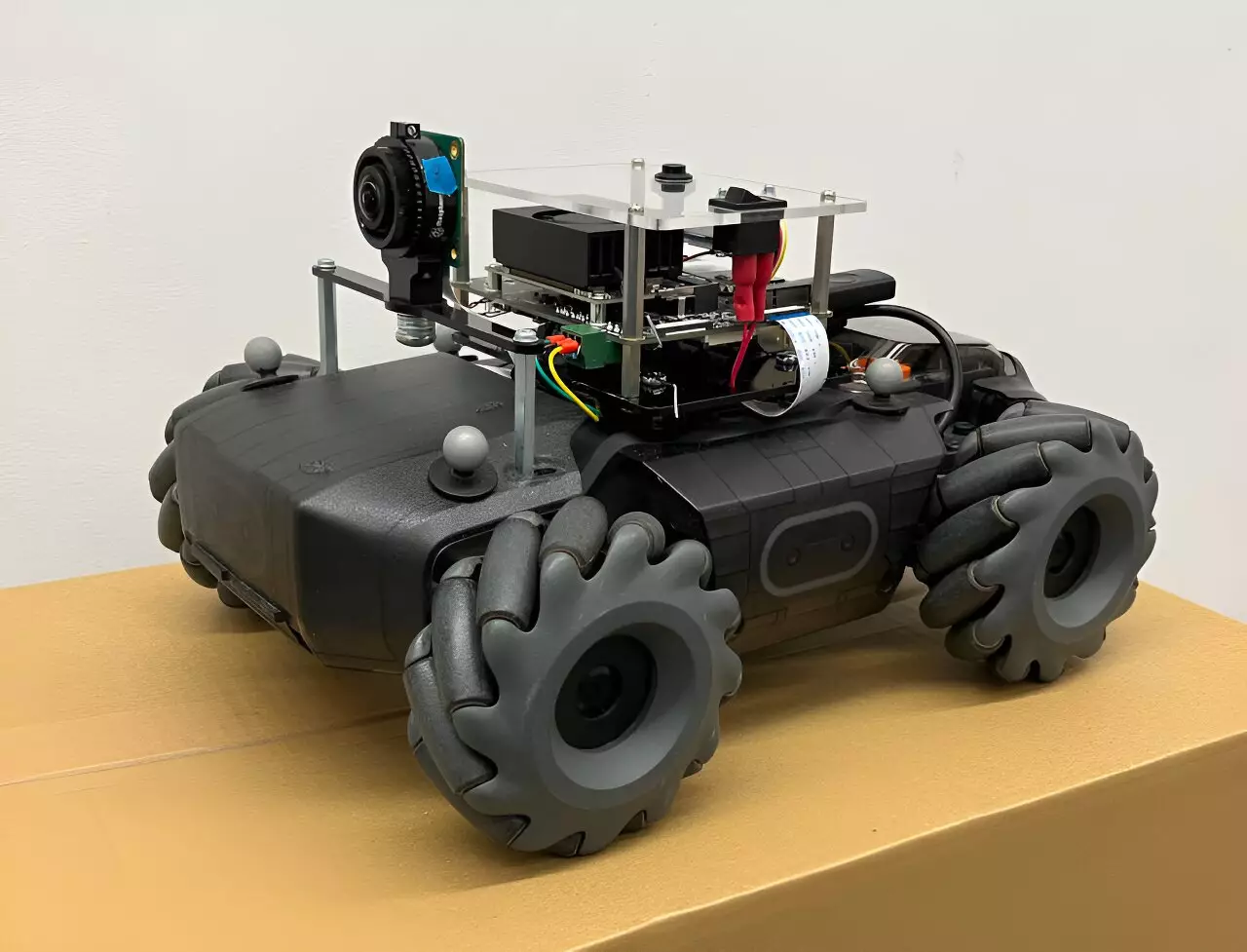Robots have the potential to revolutionize various fields by working together in teams to tackle more complex missions than individual robots. This could include covering long distances faster, visiting multiple sites simultaneously, or monitoring larger geographical areas. In order to advance research in this area, a reliable platform that combines hardware and software for multi-robot applications is essential.
Researchers at the University of Cambridge have recently introduced the Cambridge RoboMaster, a groundbreaking platform for multi-robot research. This platform consists of a fleet of customized Robomaster wheeled robots and software to simulate and train the robots for specific tasks. The main goal of this platform is to develop solutions for collective intelligence in multi-robot and multi-agent systems.
In their pursuit to create a robust multi-robot research platform, the researchers opted to enhance DJI RoboMaster S1 robots to meet their specific requirements. These customized robots were equipped with state-of-the-art computing power, speed, agility, and durability. Over the years, continuous improvement has been made to this robotic platform to make it more capable and versatile for a wide range of applications.
The Cambridge RoboMaster offers a balance between size and capabilities, overcoming the limitations of both smaller and larger robots. The control stack for on-board autonomy and peer-to-peer communication, combined with multi-agent reinforcement learning policies, make it ideal for multi-robot experiments. Moreover, the platform is cost-effective at around $700, making it accessible for researchers worldwide.
The researchers have extensively tested the Cambridge RoboMaster in various scenarios, demonstrating its power-efficiency and versatility. The robots have proven to navigate indoor and outdoor environments with ease on smooth terrains. While the platform is not intended for use in real-world settings, it serves as an excellent research tool for testing algorithms applicable in multi-agent navigation.
The Cambridge RoboMaster has shown to be a highly reliable and accessible testbed for multi-robot research. The hardware, software, and simulation tools necessary for experimentation with the platform are available on GitHub, allowing research groups worldwide to test algorithms for automated transport logistics, environmental monitoring, and search and rescue missions. The platform’s affordability and advanced capabilities make it suitable for a wide range of research demonstrations and practical applications in multi-agent systems.
Future Plans
Moving forward, the researchers have exciting plans to further enhance the platform for a variety of projects. They aim to focus on improving on-board sensing, decentralized communication, and control. Additionally, they are exploring the potential for this platform to serve as a bridge for deploying research to drones. By continuously expanding the capabilities of the Cambridge RoboMaster, the researchers strive to push the boundaries of multi-robot and multi-agent systems research.
The development of the Cambridge RoboMaster represents a significant leap forward in the field of multi-robot research. With its advanced capabilities, affordability, and versatility, this platform has the potential to revolutionize the way robots work together in teams. Researchers worldwide can now leverage this innovative platform to test and validate algorithms for a wide range of multi-robot applications, paving the way for future advancements in collective intelligence.


Leave a Reply